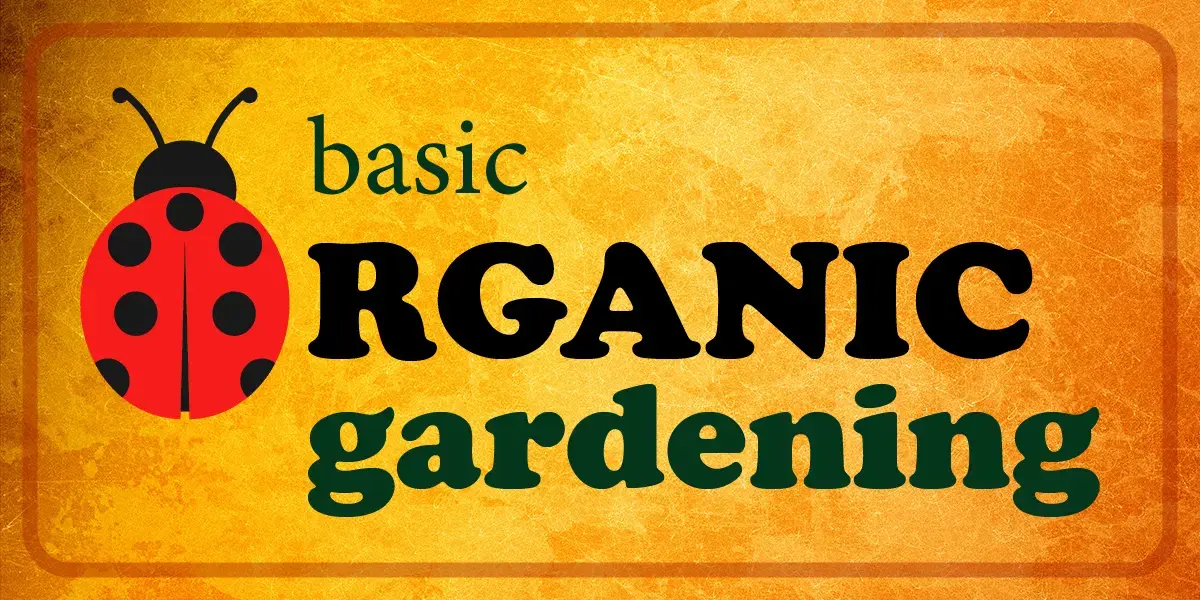A head of commercial lettuce receives 4–6 applications of insecticide, 3–4 applications of fungicide, and 1 application of herbicide before it reaches your plate.
Yep, that lettuce in your crisp lunch salad is loaded with vitamin K, vitamin A, and chemicals.
Going organic is the obvious answer if you’re loath to ingesting poison. However, not all grocery stores carry a good selection of organic produce, and what they have is often pricey.
You can:
- Grumble and continue to pay high prices for produce picked a few days ago.
- Shrug off high prices because you’re independently wealthy and too cool to care.
- Get back to the garden, like the Child of God in the classic Woodstock song. Grow your own produce organically, which is much easier than producing a top-40 hit.
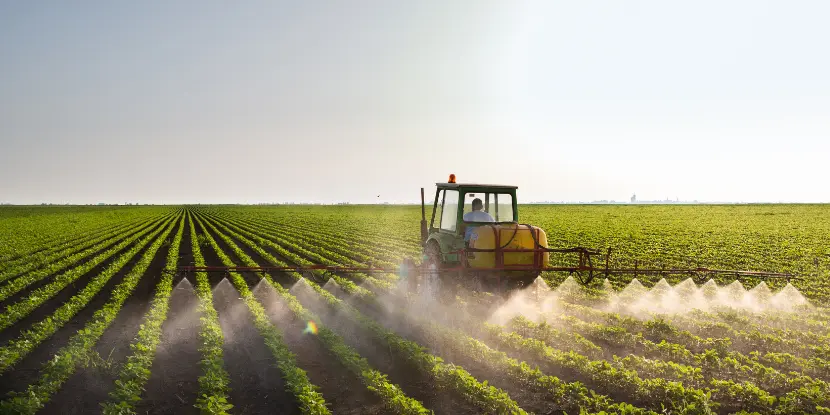
Commercial produce is sprayed with herbicides, pesticides, and fungicides during its development.
What Is Organic Gardening?
Organic gardening is the art of growing plants without using synthetic fertilizers, chemicals, or genetically modified organisms (GMOs).
It embraces natural methods to improve soil health, manage pests, and boost plant growth. The goal? To create a sustainable ecosystem that mimics nature and reduces environmental harm.
Simply put, it’s gardening the way nature intended.
Why Garden Organically?
- Organic fruits and veggies are free from harmful chemical residues.
- Organic gardening reduces soil erosion, conserves water, and improves biodiversity.
- Once you’ve started, you’ll spend less on fertilizers and pesticides.
- Many gardeners insist that organic produce tastes better and is more nutritious.
- You’re creating a self-sustaining ecosystem in your backyard.
Dangers of Chemical Gardening
Synthetic fertilizers, herbicides, and pesticides come with serious risks:
- Chemical residues in food can cause long-term health problems.
- Runoff from chemical treatments can contaminate water supplies.
- Pesticides kill essential pollinators like bees and butterflies.
- Chemicals can strip the soil of nutrients over time, making it less productive.
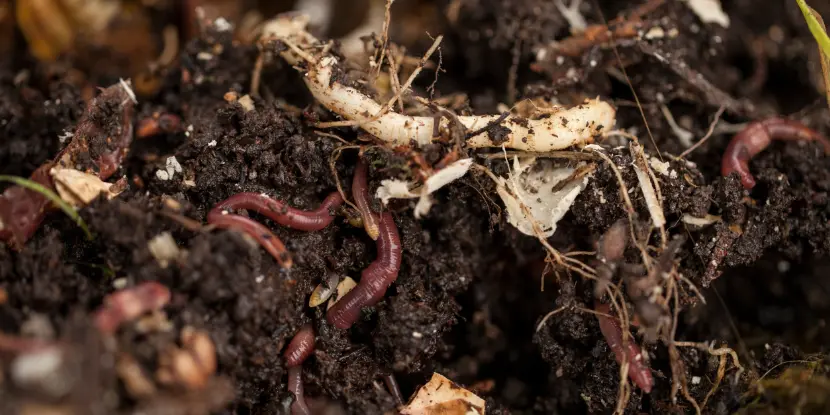
Earthworms are a sign of healthy, well-aerated soil.
Organic Gardening Principles & Techniques
A successful organic garden relies on a few key principles.
Soil Health
Healthy soil is the foundation of organic gardening. Focus on building nutrient-rich, well-aerated soil.
- Test your soil to understand its pH and nutrient levels.
- Add compost, aged manure, and organic fertilizers to enrich the soil.
- Rotate crops yearly to prevent nutrient depletion.
Pro Tip: Avoid over-tilling your soil — it disrupts the microorganisms that help plants thrive.
Pest Control
Pests are part of the natural gardening experience, but that doesn’t mean you have to make their lives easy.
- Use physical barriers like netting or row covers to protect plants.
- Introduce beneficial insects like ladybugs, which prey on pests.
- Make natural pest sprays using ingredients like neem oil or garlic.
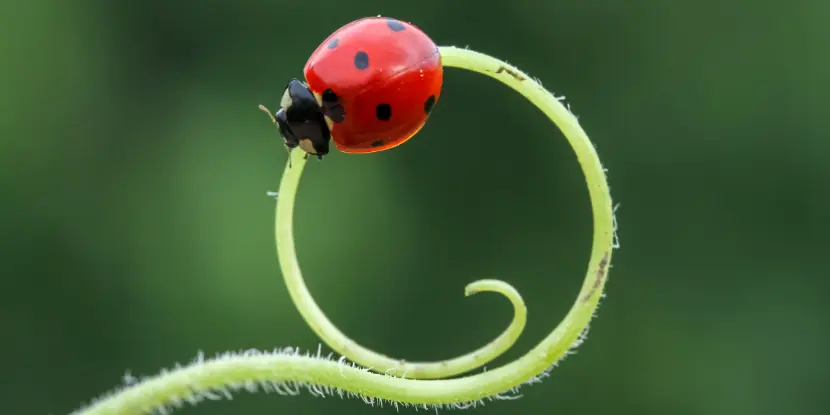
Ladybugs are natural predators that control aphid infestations.
Disease Control
Here, prevention is your best tool.
- Choose disease-resistant plant varieties.
- Allow adequate spacing between plants for good air circulation.
- Water early in the day to allow foliage to dry before nightfall.
- Water plants at the base, not on the leaves, to keep fungal diseases at bay.
- Remove infected plants immediately to prevent the spread.
Weed Control
Weeds compete with plants for water and nutrients, so keep them at bay.
- Mulch your garden beds to prevent weed growth.
- Pull weeds by hand or use handheld tools like hoes or cultivators.
- Avoid chemical herbicides, which can harm beneficial organisms and contaminate soil.
Mulching
Cover the soil with mulch — organic materials like straw, shredded bark, or grass clippings — to help retain soil moisture, suppress weeds, and regulate soil temperature.
- Add a 2–3 inch layer around your plants, but avoid piling it against the plant stems.
- Replenish mulch as needed throughout the growing season.
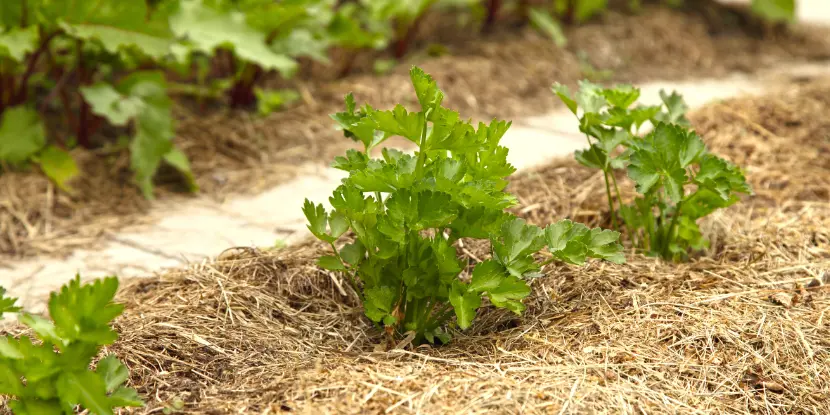
A layer of mulch suppresses weeds, retains soil moisture, and contributes to soil health.
Composting
Composting turns kitchen scraps and garden waste into “black gold” for your garden. It’s the best way to create nutrient-rich soil naturally.
Getting Started with Composting
- Combine “greens” like fruit scraps and grass clippings with “browns” like dried leaves and cardboard.
- Keep the pile moist and aerated — turn it with a pitchfork or compost tumbler weekly.
- Avoid adding dairy, meat, or processed foods, which attract pests.
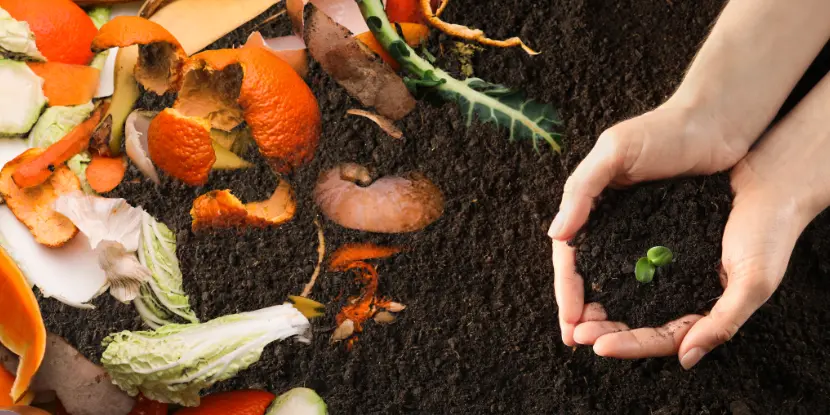
Composting is the best way to build soil health. Avoid adding meats or anything chemically treated to your compost heap.
Making Compost Tea
Compost tea is a liquid fertilizer made by steeping finished compost in water. Spray it on your plants or soil to boost their nutrient levels.
Companion Planting
Pairing the right plants can improve your yield and reduce pest problems. For example:
- Basil + Tomatoes: Basil repels tomato hornworms.
- Carrots + Onions: The smell of onions deters carrot flies.
- Cucumbers + Nasturtiums: Nasturtiums attract aphids, keeping them away from your cucumbers.
Crop Rotation
Crop rotation involves changing the location of crops each season to prevent soil depletion and reduce pests.
- Group plants by family and rotate them yearly.
- Avoid planting the same crop in the same spot for at least three years.
Pro Tip: Planting cover crops like clover or vetch during the off-season can improve soil health and add nutrients.
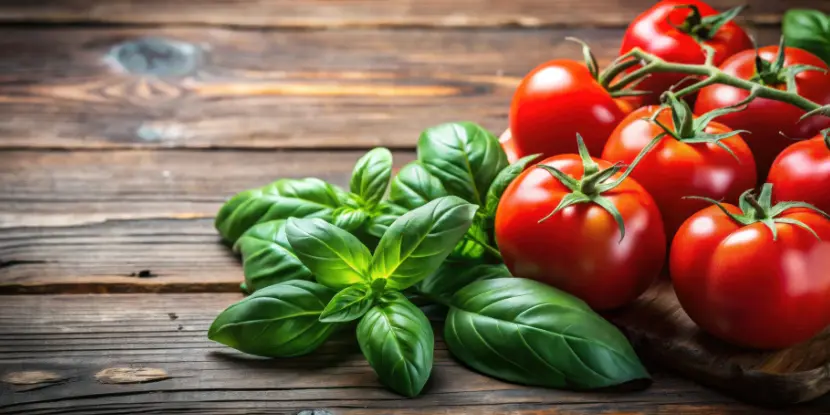
Tomatoes and basil are great kitchen companions. They make excellent garden companions, too.
Getting Started with Organic Gardening
Ready to get your hands dirty?
- Start small — it’s easier to manage and learn from a smaller plot than a large one.
- Choose a sunny spot with well-drained soil.
- Pick easy-to-grow plants like tomatoes, lettuce, herbs, or beans for your first season.
- Focus on building healthy soil and preventing pests — it’s easier than fixing problems later.
Other Tips for Organic Gardening
- Collect rainwater in barrels to water your garden naturally and reduce water use.
- Stagger your plantings every few weeks to ensure a continuous harvest throughout the growing season.
- Plant a variety of flowers, shrubs, and vegetables to create a balanced ecosystem that attracts pollinators and beneficial insects.
- Be patient. Organic gardening isn’t about instant results — it takes time to build a healthy garden. Focus on steady progress, and you’ll reap the rewards season after season.
- Collect seeds from your healthiest plants for the next season, which helps preserve heirloom varieties and reduces costs.
- Read books, join gardening forums, and connect with local organic gardeners to continue learning and improving your methods.
FAQs: Organic Gardening
Q: Is organic gardening harder than conventional gardening?
Not at all! It might take some extra effort upfront, but it becomes easier with time as your garden’s ecosystem strengthens.
Q: Can I garden organically in small spaces?
You can grow an organic garden in containers, on balconies, or even indoors with the proper setup.
Q: What organic fertilizers should I use?
Some popular options include compost, aged manure, fish emulsion, and bone meal.
Q: How can I keep pests under control without using chemicals?
Introducing beneficial insects like ladybugs or lacewings, using physical barriers such as mesh netting, and making natural pest sprays from ingredients like neem oil or garlic are all great ways to control pests organically. Companion planting also helps deter pests naturally.
Q: How often should I water my organic garden?
That depends on your climate, soil type, and the plants you’re growing. A good rule of thumb is to water deeply once or twice a week, ensuring the soil stays moist but not waterlogged. Always water at the base of your plants to prevent fungal issues.
Q: What are some good plants for beginners starting an organic garden?
For beginners, easy-to-grow plants include lettuce, tomatoes, spinach, beans, and herbs like basil or parsley. These plants are hardy, require minimal maintenance, and provide rewarding results with little effort.
Q: What’s the best mulch to use in an organic garden?
Organic mulches like straw, wood chips, grass clippings, shredded leaves, or bark are excellent choices. These materials help retain soil moisture, regulate temperature, and break down over time to improve soil structure. Avoid using non-organic or treated materials that may leach chemicals into the soil.
Q: Can I grow an organic garden year-round?
Focusing on seasonal crops can help you grow an organic garden year-round. Cool-weather crops like kale, broccoli, and spinach thrive in fall and winter, while warm-weather crops like peppers, cucumbers, and melons flourish in spring and summer. Raised beds, greenhouses, or cold frames can extend your growing season.

